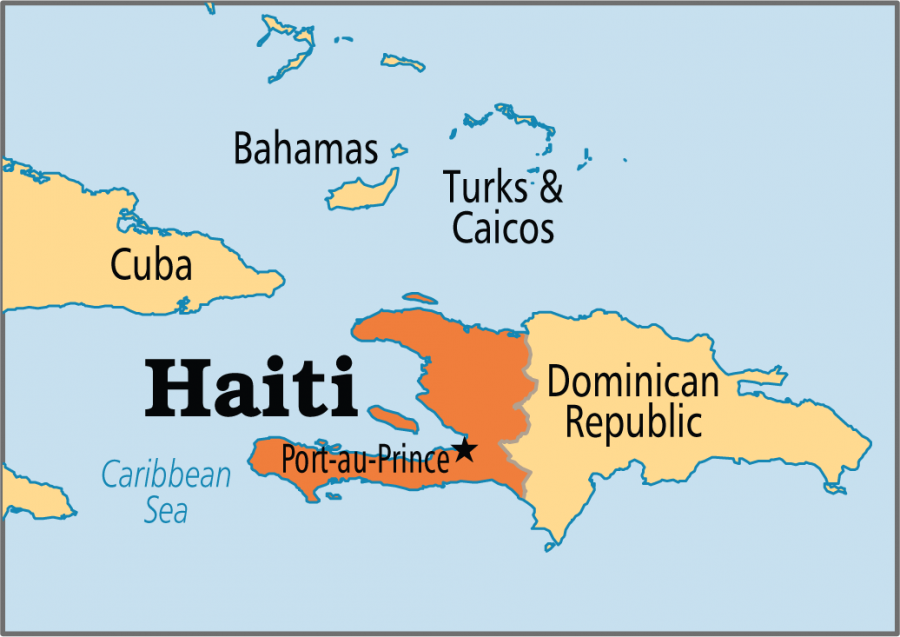An Open Letter to Donald Trump Regarding African Nations and Haiti
May 15, 2018
by Dr. Destin, Contributor
Dear Mr. President,
I was dismayed by your recent racist comments about African countries and Haiti. I can’t say I was surprised by them. You’ve proven to me time and time again that you don’t care about the impact of your words, even if they demean the very people you claim to represent, especially the Haitian-American community.
I have a 7-year-old boy whose identity proudly comes from his Ugandan, Haitian, and American cultures. So, you can imagine how I felt when I heard about your negative comments. How do I begin to explain to him why the President of the United States would compare his rich African and Haitian culture to human waste? Mr. President, there is more to Haitians and Africans than your limited perceptions.
Although I wasn’t your supporter, I watched you say to my Haitian community in Little Haiti, Miami, that you would be our “greatest champion.” Nothing could be further from the truth. Since becoming President, you’ve stripped us of our protective status and begun deporting us. You revived the dying stigma that we all have AIDS. And you now call us a people who come from a place of human waste and who ought to be sent back. Worst, you don’t believe our contributions to our nation, even though many of us work as your custodians, dishwashers, and maids in your hotels which has added to your wealth. So, I’d like to educate you on this wasteland you call Haiti and my family’s immigrant story.
If all you see in Haiti is waste and despair, then you neglect its perfume of culture and history. Haiti was the site of the first and only successful slave rebellion in world history! It became the first Western nation to be led by former slaves. It was the first nation to truly embrace the concept of liberty for all, ending slavery on the island, while France and the United States preached words of “liberty, equality, and fraternity” and “all men are created equal” all the while maintaining slavery. Haiti became the promised land for Africans wanting to escape slavery in the Western world.
The current plight of the island is the legacy of elaborate schemes and designs of foreigners and foreign nations—particularly France and the United States—who saddled the country with massive debt, forced the government to pay fraudulent maritime indemnity claims, seized Haiti’s assets, and occupied the country. Add to these damages a line of homegrown dictators, a collapsed economy, and natural disasters, and you have got an impoverished nation brought to you in part by American influence!
Haiti is more than its struggles suggest. The Haitian Revolution led to French Emperor Napoleon’s underselling of the Louisiana Territory to American President Thomas Jefferson in 1803 which doubled(!) the size of the United States. Haitian independence inspired leaders like African-American Nat Turner to lead a slave rebellion and free blacks, arguably hastening the end of the institution of slavery in America. It was a Haitian immigrant, Jean-Baptiste du Sable, who founded the city of Chicago, the adopted home city of the first black President Barack Obama and where he began his campaign for presidency.
And if you, Mr. President, had any sense of your Republican Party’s history you would know that even American President Abraham Lincoln, the icon of your party, saw the value in Haiti and African countries when he implored Congress to recognize the statehood of the island in a speech published in the New York Times on February 5, 1862.
My American story starts in Haiti. We know Haiti is a difficult place to live. The widespread impoverishment and political instability of the government make life impossible in Haiti. My parents lived and relied on subsistence farming in the most rural parts of the island. After moving to the capital city, my father struggled to find work while my mother immigrated to the United States. My father eventually followed.
Like most Haitian immigrants, life for my parents, began in the service industry. My father cut hair during the day and bussed tables at night, working his way up to head waiter. My mother took jobs as a caregiver and vendor, selling clothes at the flea market, but mostly worked as a beautician until her untimely death. My father was then left to raise his three kids, my two sisters and me. After nearly thirty years of juggling two jobs, my father opened his small barber shop business, realizing the American Dream: hard work and sacrifice.
Through hard work and sacrifice, my father was able to enroll me into one of the top art schools in the city. I struggled socially in school because of the refugee and AIDS stigma attached to Haitians. Through my own hard work and sacrifice, I was admitted to leading colleges and universities including the prestigious Morehouse College, the University of Chicago, and University of Pittsburgh, and earned bachelors, masters, and doctoral degrees.
In college, on a study abroad program, I met my Ugandan wife in Cape Town, South Africa. When I visited her and her family, their modern home, styled in Queen Anne architecture, did not correspond with Americanized African huts. The African cuisine luwombo was delicious and “healthier” than our fast food selections in the States. My wife comes from an educated family with several lawyers. Immigrating to the United States was essentially a step down in status for my wife. She entered law school at the University of Pittsburgh and now works in public service, serving the interest of American citizens.
As my wife and I begin to explain to our son the richness of his heterogeneous heritage, Mr. President, you might want to listen in.
*Please note that pieces of this article were previously published in the Pittsburgh Post-Gazette; http://www.post-gazette.com/opinion/2018/01/26/Haiti-history-heritage/stories/201801170015



